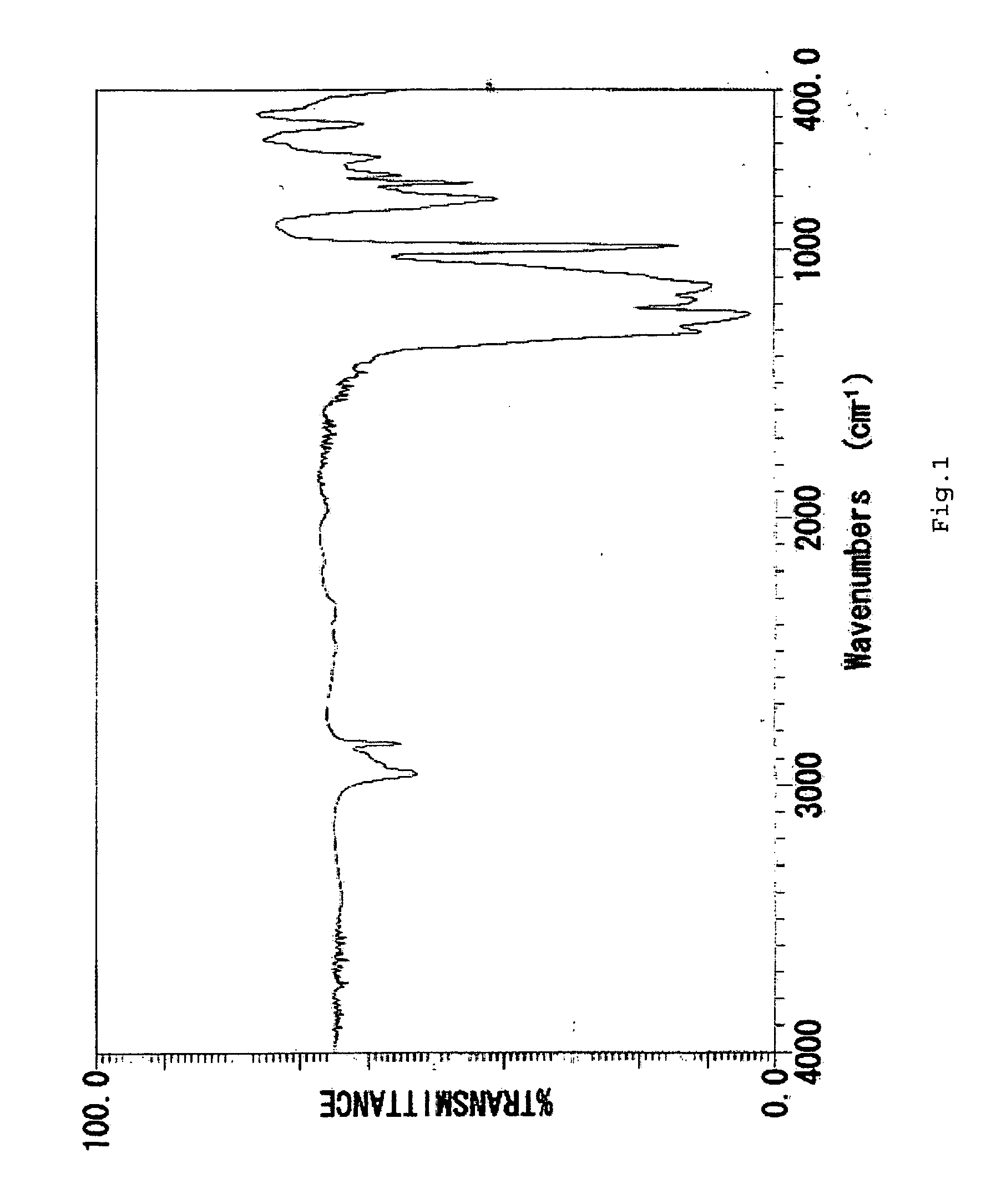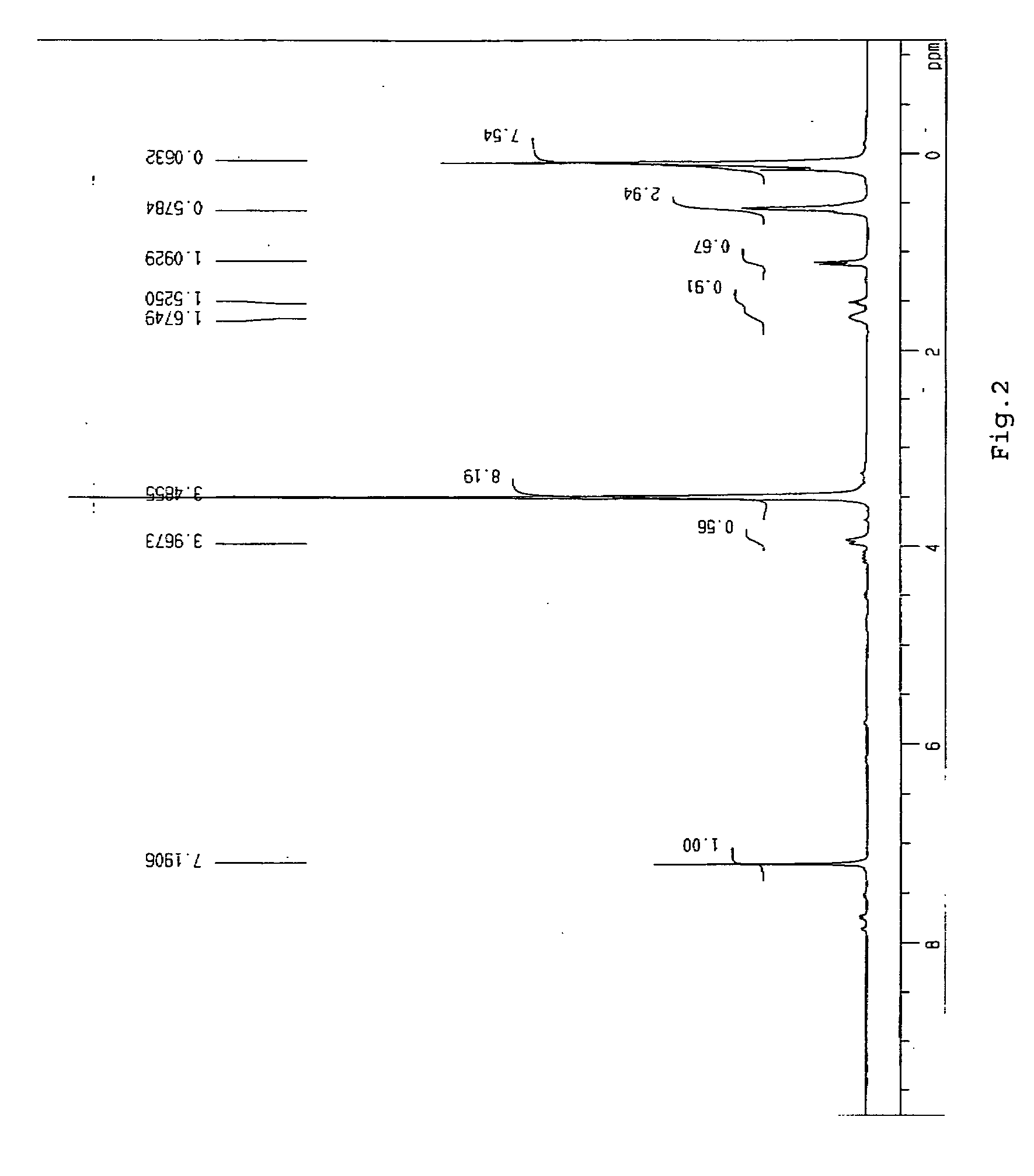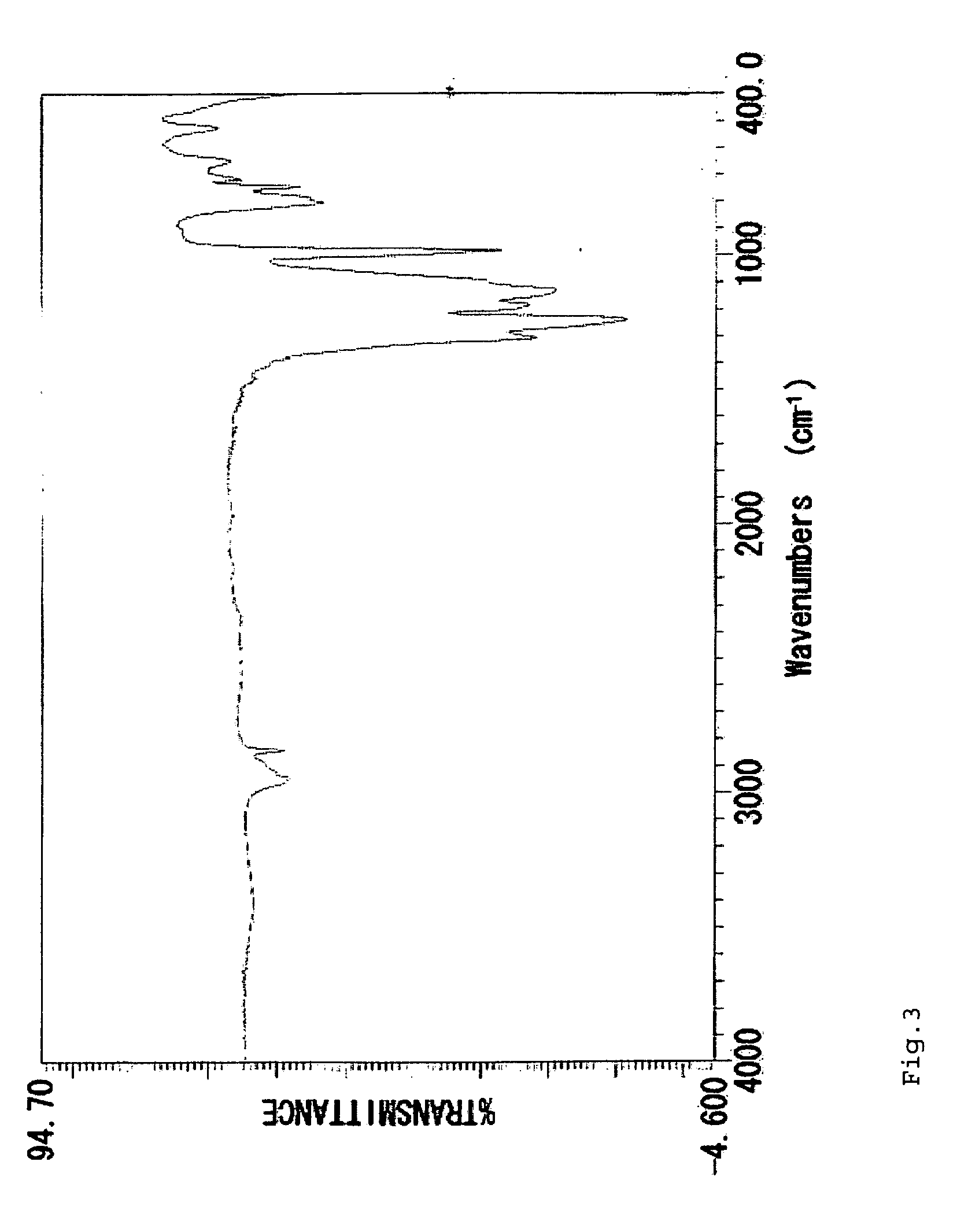Fluorine-containing organopolysiloxane, a surface treatment composition comprising the same and an article treated with the composition
a technology of organopolysiloxane and composition, which is applied in the direction of silicon organic compounds, layered products, transportation and packaging, etc., can solve the problems of insufficient bonding strength to a substrate, hardly forms a coating that is bonded well to the substrate, and the bonding strength is not large enough for the layer to be durable, etc., to achieve uniform oil and water resistance and improve scrub resistance
- Summary
- Abstract
- Description
- Claims
- Application Information
AI Technical Summary
Benefits of technology
Problems solved by technology
Method used
Image
Examples
example 1
[0092] In a reactor, 50 g of perfluoropolyether compound represented by the following formula (I) having α-unsaturated bond at one end,
[0093] 70.3 g of m-xylenehexafluoride, and 0.0442 g, i.e., 1.1×10−7 mole as Pt, of a solution of a complex of chloroplatinic acid with a vinylsiloxane in toluene are placed and heated to 90° C. while stirring. To the mixture obtained, 21.93 g of the organopolysiloxane of the following formula (H4Q)
was added dropwise and heated at 90° C. for 3 hours. After confirming that no allyl group remained by 1H-NMR, the solvent and unreacted H4Q were removed by vacuum evaporation. The evaporation residue was treated with active carbon and 77.5 g of colorless and transparent liquid perfluoropolyether-modified organopolysiloxane were obtained.
[0094] Subsequently, in a reactor, 25 of the aforesaid perfluoropolyether-modified organopolysiloxane, 30 g of m-xylenehexafluoride, and 0.0225 g, i.e., 2.2×10−6 mole as Pt, of a solution of a complex of chloroplatinic...
example 2
[0098] The method used in Example 1 was repeated except that 14.5 g of tetramethylcyclotetrasiloxane, which is a cyclic siloxane called H4 was used in place of H4Q and a compound, hereinafter referred to as Compound 2, was obtained. Compound 2 has a specific density of 1.55 and a refractive index of 1.343.
Compound 2 showed IR and 1H-NMR spectra as shown in FIGS. 3 and 4 with the following chemical shifts from TMS.
[0099]1H-NMR spectra (δ, ppm)
0.08 ppm≡SiCH2CH2Si≡0.55 ppm1.10 ppm—CH2CH2Si≡1.68 ppm—SiOCH33.48 ppm—CH2OCH2—3.93 ppm
[0100] From the above data, Compound 2 was found to have the following structure.
example 3
[0101] The method used in Example 1 was repeated except that 37.3 g of organopolysiloxane of the formula shown below having a silethylene group was used in place of H4Q, and a compound, hereinafter referred to as Compound 3, was obtained. Compound 3 has a specific density of 1.71 and a refractive index of 1.330.
[0102] Compound 3 showed IR and 1H-NMR spectra as shown in FIGS. 5 and 6 with the following chemical shifts from TMS.
[0103]1H-NMR spectra (δ, ppm)
−0.04ppm≡SiCH2CH2Si≡0.36˜0.41ppm0.97˜0.41ppm—CH2CH2Si≡1.54ppm—SiOCH33.35ppm—CH2OCH2—3.79˜3.82ppm
[0104] From the above data, Compound 3 was found to have the following structure.
PUM
| Property | Measurement | Unit |
|---|---|---|
| temperature | aaaaa | aaaaa |
| thickness | aaaaa | aaaaa |
| thickness | aaaaa | aaaaa |
Abstract
Description
Claims
Application Information
 Login to View More
Login to View More - R&D
- Intellectual Property
- Life Sciences
- Materials
- Tech Scout
- Unparalleled Data Quality
- Higher Quality Content
- 60% Fewer Hallucinations
Browse by: Latest US Patents, China's latest patents, Technical Efficacy Thesaurus, Application Domain, Technology Topic, Popular Technical Reports.
© 2025 PatSnap. All rights reserved.Legal|Privacy policy|Modern Slavery Act Transparency Statement|Sitemap|About US| Contact US: help@patsnap.com



